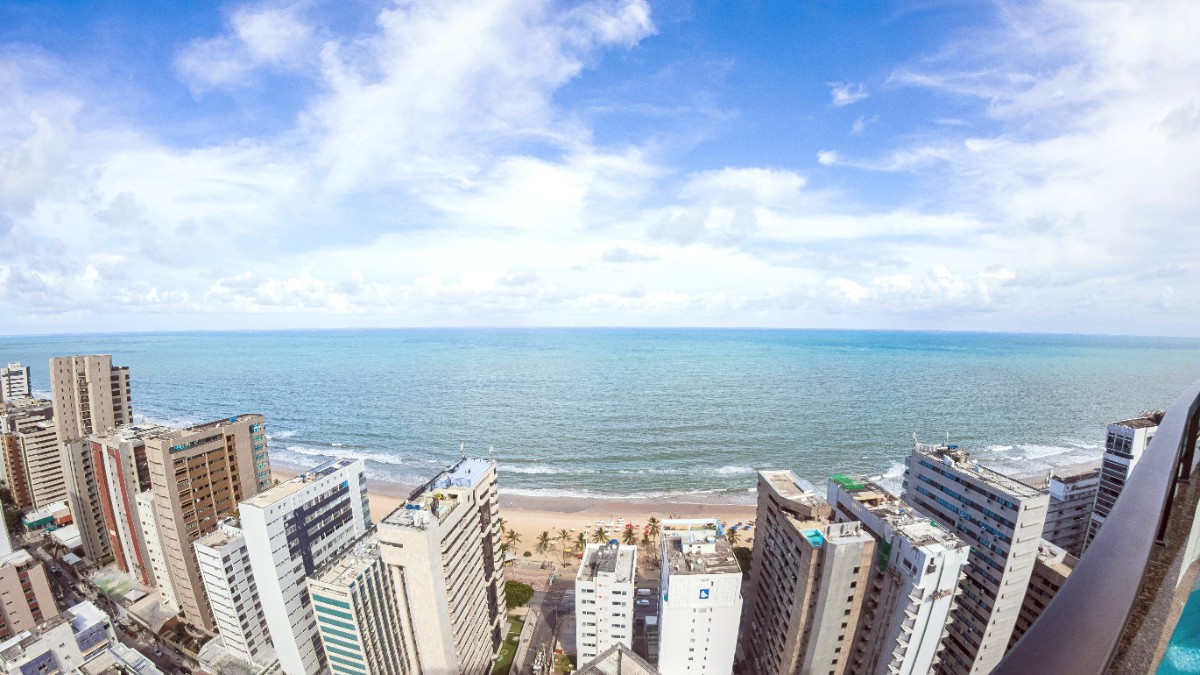
The Northeast, Brazil
Temperature: Average daily temperatures in Recife consistently range from 24°C to 29°C (75°F to 84°F). Little seasonal variation in temperature makes it a warm destination year-round.
Humidity: High humidity is present year-round, often remaining above 80%.
Recife does not sit directly in the hurricane belt, but tropical depressions can bring periods of heavy rain. The main weather consideration revolves around the rainy season.
While it can be intense, it does not typically bring continuous downpours. Be prepared for tropical showers, which can pass quickly.
December to March, July, Carnival period
Generally drier weather, especially December to March. All attractions and services operate fully.
Higher prices for accommodations and flights due to demand. City becomes crowded, especially during holidays and Carnival.
April, August, September
Transition in weather. Less rain than peak wet months. Fewer crowds compared to high season. Potentially better prices on hotels and airfare. Lively atmosphere.
April and August can still experience outstanding rainfall. Flexibility in your plans helps if rain occurs.
May, June, October, November
Lowest prices on flights and accommodation. Fewer tourists mean a more relaxed experience, a connection with local life.
May and June typically the wettest months. This can impact outdoor plans, though rain often comes in showers rather than continuous downpours. Some smaller services or attractions might have reduced hours.
The drier months, from September to March, offer the best conditions for enjoying Recife's beaches, strolling along the promenade, and exploring outdoor sites.
You can explore the city's museums, historical sites, and cultural centers year-round. Less rain makes walking tours more pleasant, so the drier season is a slight advantage for extensive walking.
Late February or early March (check specific dates each year).
Book accommodations well in advance, sometimes a year ahead.
Recife's famous Carnival is an experience not to be missed.
Expect large crowds and festivities.
The city pulses with music, dance, and celebration.
Rules vary by nationality. Checking current official information always has value.
As of June 10, 2019, citizens of the United States, Canada, Australia, and Japan do not need a visa to visit Brazil for tourism or business. This waiver allows stays up to 90 days, with a possible extension for another 90 days. Total stay cannot exceed 180 days within any 12-month period. This simplifies travel for many visitors.
Have all necessary documents ready for entry.
Prices vary widely based on your travel style and choices.
These are general estimates; actual costs match your specific choices.
Awareness and preventative measures are your best tools.
Yellow Fever vaccination for travelers from or transiting through risk areas. Check current WHO and CDC guidelines.
Consult a healthcare professional (4-6 weeks before travel). Common recommendations for Brazil include routine vaccinations (MMR, DTP), Hepatitis A, B, and Typhoid.
Dengue fever, Chikungunya, and Zika virus are present. Use Insect repellent consistently. Wear long sleeves/pants if outdoors during dawn/dusk. Ensure accommodation has screens or nets.
Food and Waterborne Illnesses Prevention
Be cautious with street food; ensure it is freshly prepared and served hot. Drink only Bottled or purified water. Avoid ice in drinks unless you are certain of its source. Wash your hands frequently with soap and water or use Hand sanitizer, especially before eating.
Sunburn and Heat Exhaustion: High temperatures and strong sun are common. Use High-SPF sunscreen. Wear a Wide-brimmed hat and UV-protective sunglasses. Stay hydrated by drinking plenty of bottled water throughout the day. Seek shade during the hottest parts of the day.
Tap water in Recife generally not safe for drinking.
Recife has both public and private hospitals. Private hospitals generally have a higher standard of care and may have English-speaking staff. Major private hospitals include Hospital Santa Joana, Hospital Esperança, and Real Hospital Português. For anything beyond minor issues, private facilities are suggested if your travel insurance covers them.
Widely available across the city. They provide basic over-the-counter medications and advice for minor ailments.
General Emergency (Police, Ambulance, Fire): Dial 190 for Police, 192 for Ambulance (SAMU), and 193 for the Fire Department. These are direct lines for immediate assistance.
Recife, like any large urban area, has areas with higher crime rates. Petty crime, like pickpocketing and bag snatching, is a concern, especially in crowded tourist areas and on public transport.
Natural Disaster Risks and Seasonal Hazards
Heavy rains during the wet season (May-July) can cause localized flooding, specifically in low-lying areas. This can impact transportation and pedestrian movement.
Beaches, especially Boa Viagem, are known for strong rip currents. Additionally, a recognized presence of sharks due to the natural reef disturbance by port construction. Swim only in designated areas protected by the natural reef at low tide. Observe local warnings and lifeguard instructions. Heed any red flags or signs indicating danger.
Comprehensive travel insurance is highly suggested. It should cover emergency medical treatment, emergency evacuation, trip cancellation or interruption, and theft or loss of belongings. Review policy details carefully to meet your needs. World Nomads, SafetyWing, Insubuy are options.